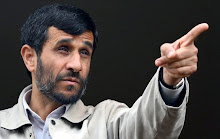An Anonymous Poem from Iran
Friday the 19th of June, 2009
Tomorrow, Saturday
Tomorrow is a day of destiny
Tonight the cries of Allah-o Akhbar
Are heard louder and louder than the nights before
Where is this place?
Where is this place where every door is closed?
Where is this place where people are simply calling God?
Where is this place where the sound of Allah-o Akhbar gets louder and louder?
I wait every night to see if the sounds will get louder and whether the number increases
It shakes me
I wonder if God is shaken
Where is this place where no one comes to our aid?
Where is this place where only with our silence we are sending our voices to the world?
Where is this place where the young shed blood and then people go and pray?
Standing on that same blood and pray?
Where is this place? You want me to tell you?
This place is Iran
The homeland of you and me
This place is Iran




